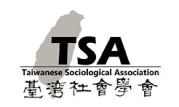4.原漢通婚家庭子女的族群認同與身分從屬(Ethnic Status Inheritance in Aboriginal-Han Marriages and Families)
2018-08-20
| 描述 Description |
過去廿年間,原漢通婚家庭的子女在族群身分的選擇上越來越具彈性。在2001年《原住民身分法》通過前,原住民認定標準幾經變革,不同制度時期的通婚子代的族群認定與從屬現象,但卻少研究對身分法通過前雙裔子女的身分認定問題進行探討。本研究運用2000年普查資料親子配對資料,重返決定原漢雙裔子代族群身分的家庭與社會脈絡,分析原漢通婚家庭中雙裔子代族群身分之歸屬,檢視夫妻協商過程中相關結構性因素的作用。 研究發現如下:(1)在1991年更具選擇彈性的身分法通過後,雙裔子女從母親承繼原住民身分的機率反而下降,當社會氛 圍對原住民依舊不利時,父母對於讓子女承繼原住民身分仍持觀望態度。(2)在父系社會從父姓、從父之慣性的脈絡下,雙裔子女從父親處承繼原住民身分的機率遠高於從母親處承繼的可能;但當原住民母親有強勢的資本時,子女從母承繼原住民身分的可能性將提高。(3)相 較於都會區,原鄉的通婚家庭一方面因社會支持,一方面因同儕壓力,雙裔子女承繼原住民身分的可能性較高;(4)社經地位低的原住民家庭有較強的從屬原住民身分的傾向,但總體比例不高,子女因利益導向承繼原住民身分的情況,並不如預想中那麼嚴重;(5)原住民菁英族 群的通婚對族群認同與內部凝聚力的衝擊,值得未來進一步研究的關注。 關鍵詞:原漢雙裔、族群通婚、原住民身分認定、普查資料 |
| 形式 Form | 文字、單期 |
| 來源 Origin | 台灣社會學會 |
| 關聯 Relation | 台灣社會學刊第54期 |
| 英文摘要 abstract | Ethnic Status Inheritance in Aboriginal-Han Marriages and Families Chien-chia LIU Institute of Sociology Academia Sinica Ying-hwa CHANG Institute of Sociology Academia Sinica Abstract During the past two decades, the children of marriages between Han Chinese and indigenous residents of Taiwan have become increasingly flexible in terms of determining their ethnic status. Before the “Status Act for Indigenous Peoples” was passed by the Taiwan Legislative Yuan in 2001, the administrative regulations on the status identification for indigenous peoples had been revised several times, but few efforts have been made to address the impacts of the revisions before 2000 on interethnic marriages and children. Here we use paired parent-child data from the 2000 Republic of China Census to examine the effects of complex family and social contexts on these children’s ethnic status choices. Our main findings are (a) the probability of bi-ethnic children inheriting indigenous status from their mothers decreased after the implementation of more flexible administrative regulation on ethnic identification for indigenous peoples in 1991. The impacts of institutional changes are not reflected in the ethnic inheritances of children because of their parents’ reluctance and negative social atmosphere; (b) in accordance with the patriarchal custom of determining descent through the father’s family line, children born in bi-ethnic marriages are more likely to inherit indigenous status via their indigenous fathers rather than their indigenous mothers. Nevertheless, some exception can be observed if the indigenous mother are more resourceful than the Han father in a family; (c) in contrast to families living in non-aboriginal townships, inter-ethnic families residing in aboriginal townships are more likely to allow their children to inherit indigenous status due to social support and peer pressure; (d) the likelihood of inheriting indigenous status is higher in socially and economically disadvantage families. However, the effect of instrumental purpose on inheriting indigenous status is not as strong as people expected since the disadvantageous families identifies in this study are small in number; and (e) the impacts of ethnic intermarriage on ethnic cohesion and identity in elite families is deserving of further study. Keywords: Bi-Ethnic Children, Intermarriage, Indigenous Status Identification, Census |
| 創作者 Creator | 劉千嘉、章英華(Chien-chia LIU&Ying-hwa CHANG) |
| 出版者 Publisher | 台灣社會學會 |
| 貢獻者 Contributor | |
| 權利 Right | 已授權 |
| 日期 Date | 2014年6月 |
| 格式 Format | |
| 識別碼 Code | tsa-tj-054_20140600_0004-0000-p.pdf |
| 語言 Language | 中文 |
| 數位檔連結Download | ( tsa-tj-054_20140600_0004-0000-p.pdf ) 華藝線上圖書館連結▼ |



